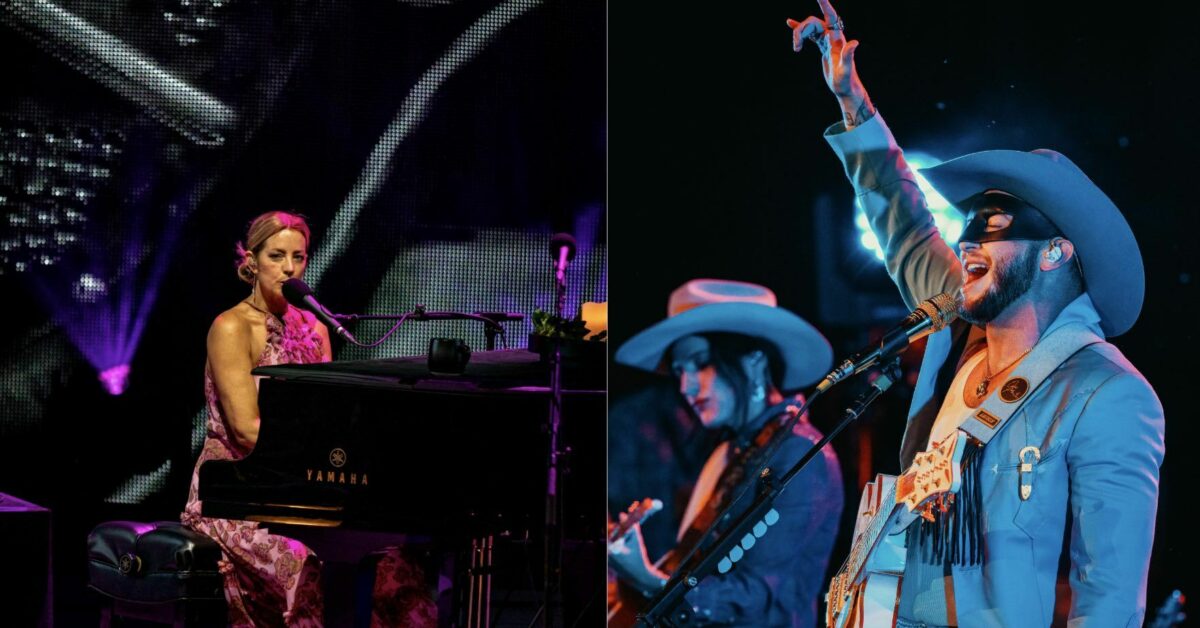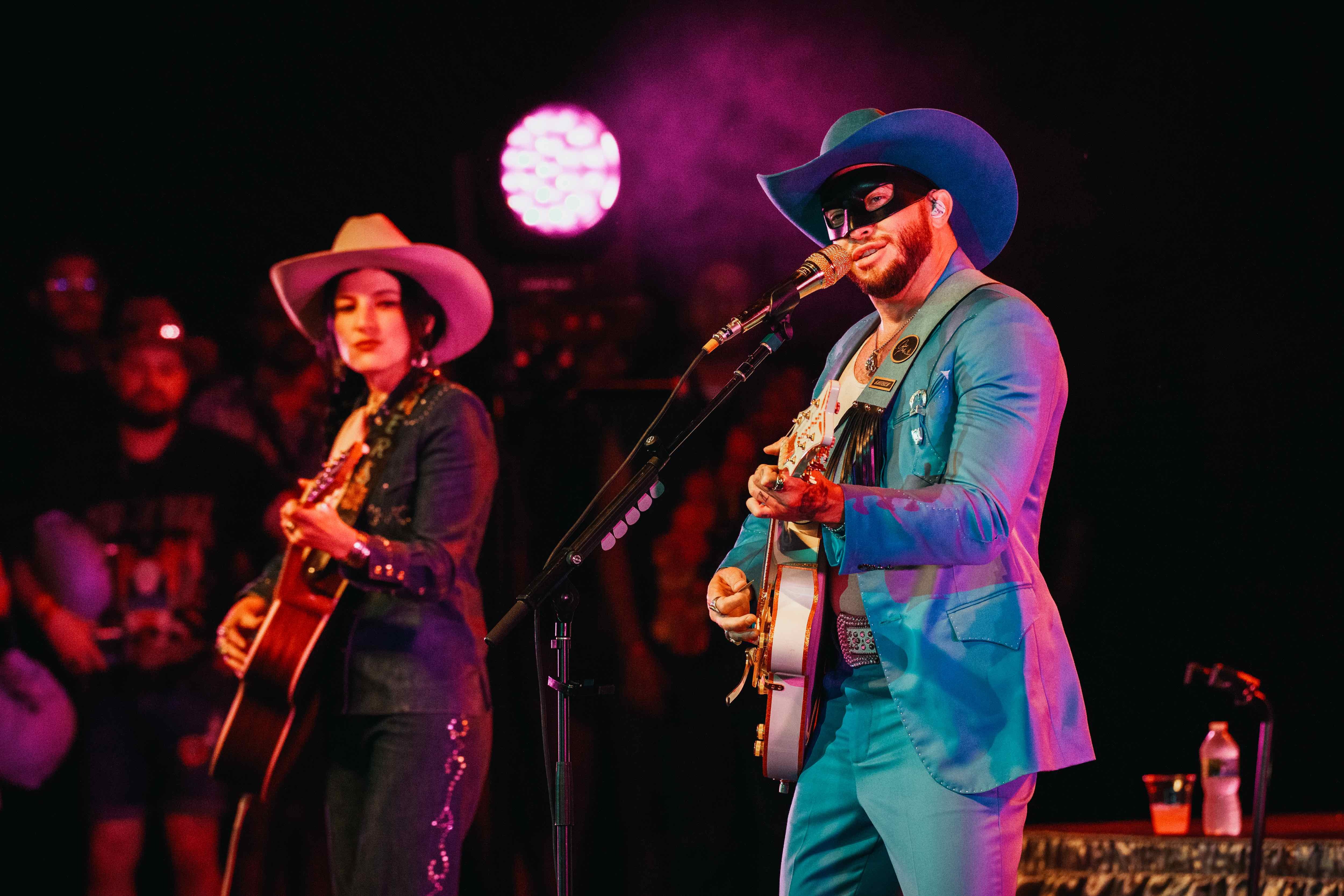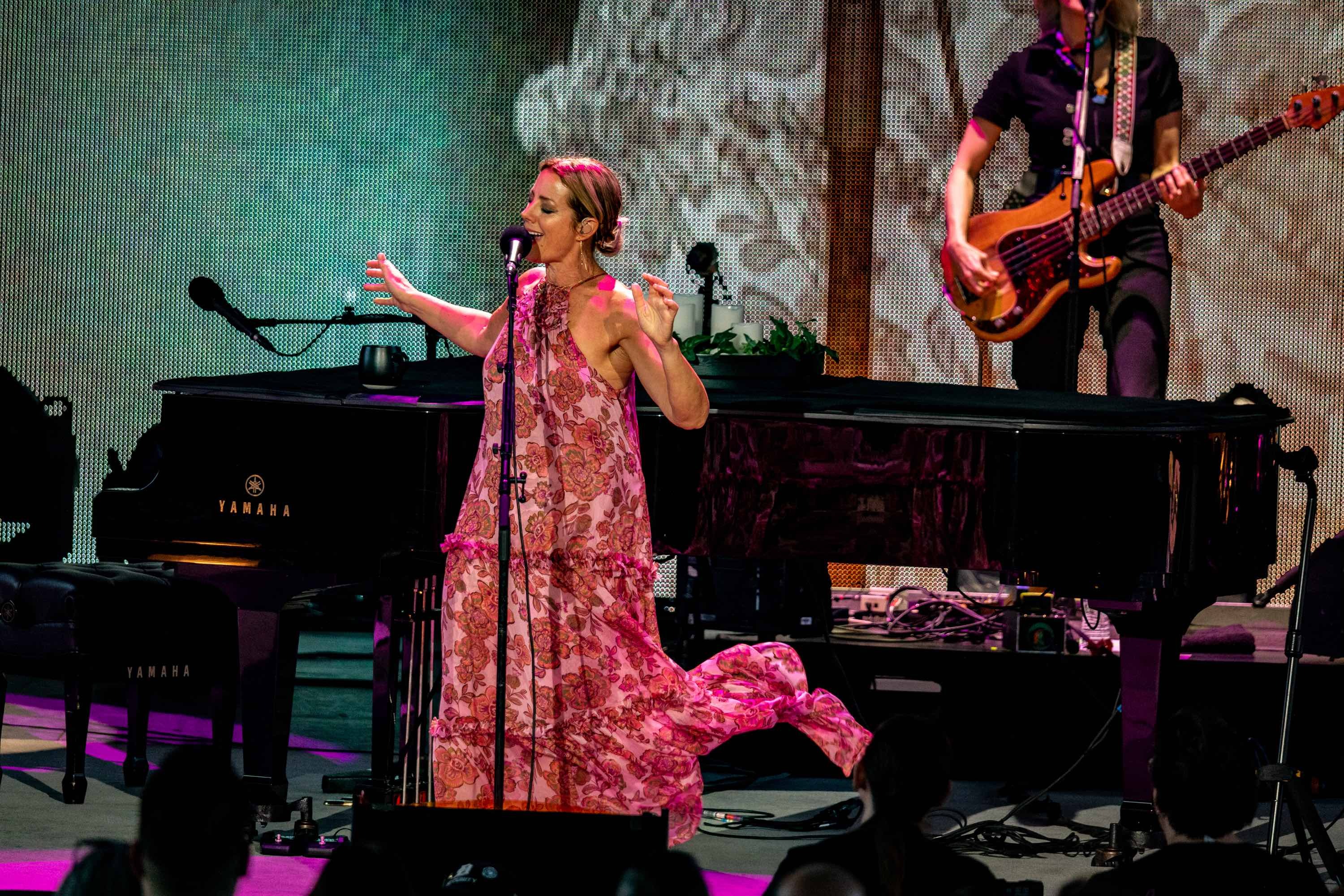How Orville Peck and Sarah McLachlan Honored Pride Month at Their Michigan Concerts
For the artists and their queer fans, there was a mutual respect

This year's Pride celebrations extended beyond the stages set up on Nine Mile in Ferndale and within Hart Plaza. Drawing substantial queer audiences, two venues hosted two prominent artists who celebrated Pride in their own ways: a rising gay performer in country music and a trailblazing figure for women in the industry.
Orville Peck, known for his unique blend of country and queer aesthetics, brought a subtle charm to his performance at Meadow Brook Amphitheatre on June 4. Songs from his two full-length albums, including his 2019 debut “Pony,” as well as his latest duets EP, “Stampede: Vol. 1,” filled out the setlist. The crowd was rapturous, going wild while he shed his sky-blue blazer midway through the set to reveal a muscle shirt, though his presentation throughout the show stayed more restrained than the campy cowboy persona he often embodies.
Despite lyrical nods to queer love and sex within his new cover “Cowboys Are Frequently Secretly Fond Of Each Other,” the show maintained a cautious approach toward overt sexuality, a key element of Peck’s artistic identity offstage. Just days later, Peck could be seen posing naked astride a giant balloon bull for Paper Magazine, highlighting the typically tantalizing nature of his persona.
Instead, at Meadow Brook, Peck engaged the audience with a playfulness that felt far more modest than you might expect from a performer who, like Lil Nas X, is toying with sexuality in bold ways elsewhere. For instance, it felt out of character for him to select individuals in the audience, including a fan sporting a Shania Twain t-shirt, only to hand them a single red rose, a sweet gesture but, as an extension of his artistry, one that feels more in line with Michael Bublé than what we’ve come to know about Orville Peck.

Overall, his stage presence leaned towards romanticism rather than fully embracing the erotic cowboy fantasy that has garnered attention online. My first time seeing him live, I was missing his exaggerated theatricality. Navigating country music as an openly gay artist — and an honored one, at that, as he just took home the GLAAD Vito Russo Award last month — is a tricky thing and a big responsibility if you make it one, which, based on this show, Orville does. He proudly acknowledged Pride Month in front of people who seemed to be there for a night out to experience some country music, not queer sexuality (a mixed-sex couple in front of me, who were up and moving the whole time, stood frozen during “Cowboys Are Frequently Secretly Fond Of Each Other,” and then disappeared).
It can’t be easy to play for an LGBTQ+ audience trained by him to expect his subversiveness while also courting those outside of the community whose embrace of him is instrumental in dismantling the status quo in country music. I realize Peck has no blueprint for what he’s doing as a man bringing yeehaws and bedroom eyes to the genre — when’s the last time an out queer country artist smeared dollops of whipped cream on their crotch? — so if I’m unsure of what to make of Peck as an artist at this early juncture in his career, maybe I’m not the only one. Maybe he’s still figuring it out too.
A week and a half later, on June 13, I saw an artist who, over many decades since the 1980s, has well-defined her look and sound to be both enchanting and ethereal. As Sarah McLachlan stepped onto the stage at Michigan Lottery Amphitheatre at Freedom Hill, it seemed as though her voice summoned the wind that evening, coaxing it to gently sway her dress in perfect harmony with the dreamlike realm she evoked for over two hours.
It was almost like we really were in the arms of an angel (also: an animal right now needs you), one who embraced her LGBTQ+ fans with a Pride Month declaration that had me recalling the time she candidly told me she was “pretty straight” during an interview in 2014, leaving room for her experience hanging with lots of women after a Boston gig. “Uhh, there was one bartender in particular who was really hot! And I'm not gonna say anything else, but yeah,” she said to me at the time, laughing. McLachlan expanded on her thoughts about Pride to the unsurprisingly lesbian-heavy crowd (I won’t assume that one woman I met is a lesbian, so all I’ll say is she drove over three hours from Kent, Ohio to see McLachlan and sported a shirt with a big rainbow on it, so you can draw your own conclusions).

After acknowledging Pride Month, McLachlan said that “it should be every single month [that] we get to celebrate Pride.” She added that she grew up “pretty isolated and alone and music was the one thing I had,” mentioning that it “gave me a sense of self-worth.”
“Every single one of us is beautiful and unique and singular just as we are,” she said. “ I’m so happy for this month and all the celebrations, and I’m so happy to say happy Pride, everyone.”
That moment of deep appreciation for her LGBTQ+ fans transitioned into “Elsewhere.” The song is from McLachlan’s 1993 album “Fumbling Toward Ecstasy,” which she performed in full, from “Possession” through to the title track, for this anniversary tour, though you’d never know any time had passed by watching her perform it live: She sounded ageless, her voice still effortlessly gliding through the highest notes on “Fear” and, earlier in the show, bringing the same vocal magic she brought to hits like “Sweet Surrender” and “Building a Mystery” in the 1990s.
But it was “Elsewhere,” a slow-burn of a song that, given McLachlan’s lead-in, felt like it was reborn as a Pride anthem, particularly when she delivered these lines now, with anti-trans rhetoric and legislation rampant: “I believe this is heaven to no one else but me, and I'll defend it long as I can be,” she sang. “Left here to linger in silence if I choose to, would you try to understand?”










